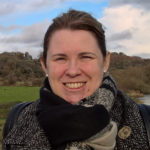Human Dignity
Human dignity is disregarded and threatened in many areas of the world, while appeals to human dignity are sometimes made in support of opposing public policies. Behind conflicting appeals to dignity are sometimes different visions of what it means to be human, and for human beings to flourish.
Origins of the Research Programme
We started the Research Project on Human Dignity in 2016 to explore the notion of human dignity, as this derives from ideas in Classical Greece and Rome as well as in the Bible which were synthesised by the Fathers of the Church to form a concept of dignity further enriched and promoted through music, art, literature and philosophy in western humanism. Papers from seminars at Blackfriars, Oxford, have been edited for publication by Bloomsbury in 2019. My monograph is also currently approaching completion.
Different Understandings of Dignity
In 2017-18 we turned to the contemporary debates in which often radically different and contradictory interpretations of the term are used. Co-sponsored by St Mary’s University, Twickenham, a series of three workshops were held on democracy and populism, on bioethics, and on the plight of those (women, especially) on the margins of the labour market.
Recent Developments
In Michaelmas 2018 we welcomed Dr Maria Power to the Institute.
Dr Power specializes in the role that religion plays in peacebuilding, intra-faith dialogue, and the ways that beliefs and values can shape the business environment and will be looking in the coming years at the relationship between understandings of human dignity and non-violent approaches to conflict resolution, developing a definition of Just Peace which is grounded in Catholic social teaching, and a reconceptualisation of the British Welfare State that puts human dignity at the heart of decision making.
Michaelmas 2018 also sees the launch at the Institute of a new programme concerning the Future of the Humanities and led by Prof. Michael Scott in collaboration with Georgetown University. A half-day conference with papers from Prof. Emma Smith (Oxford) Prof. John Dukakis () and Prof. will feature a key-note address from Prof. Terry Eagelton.


